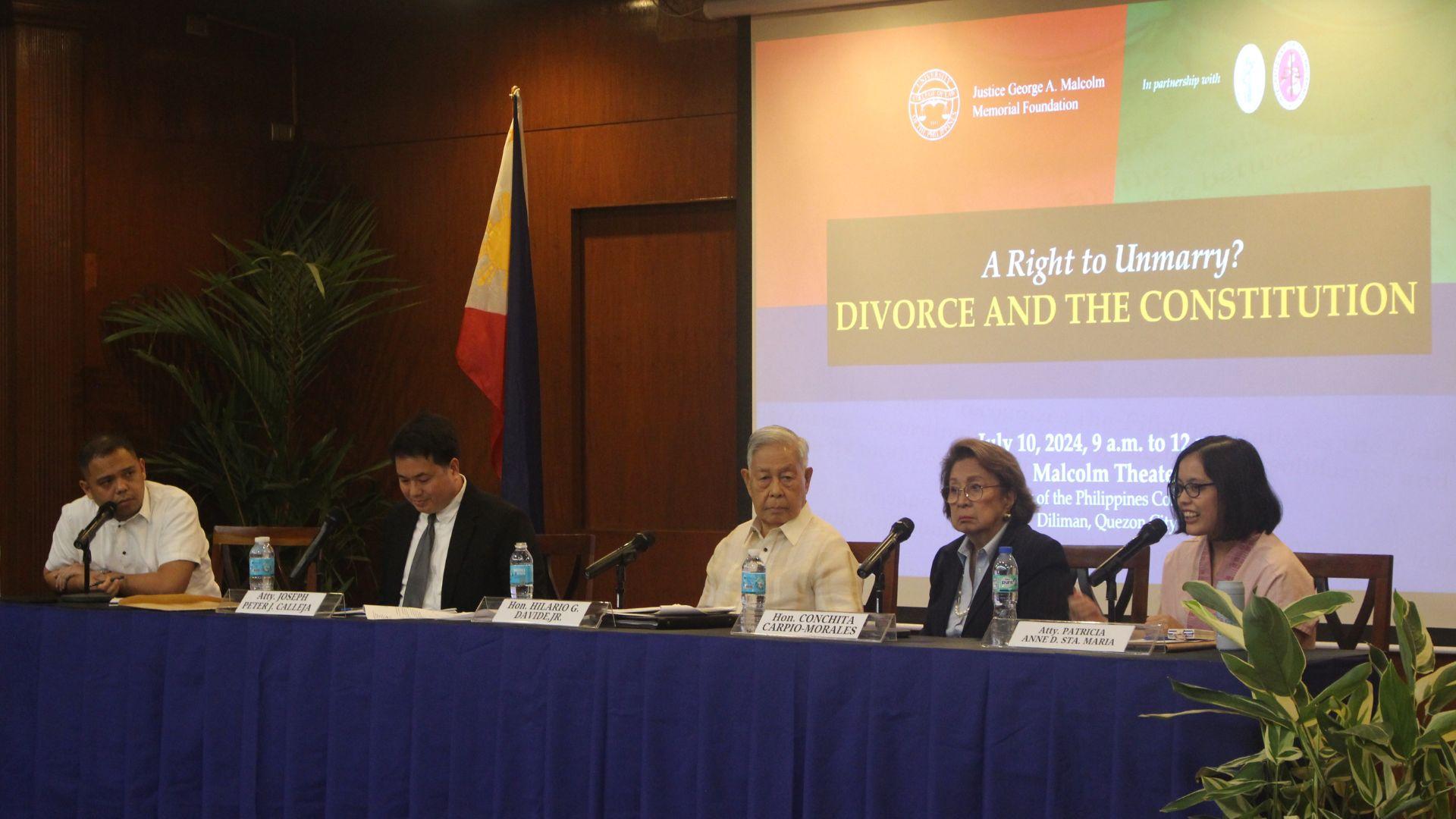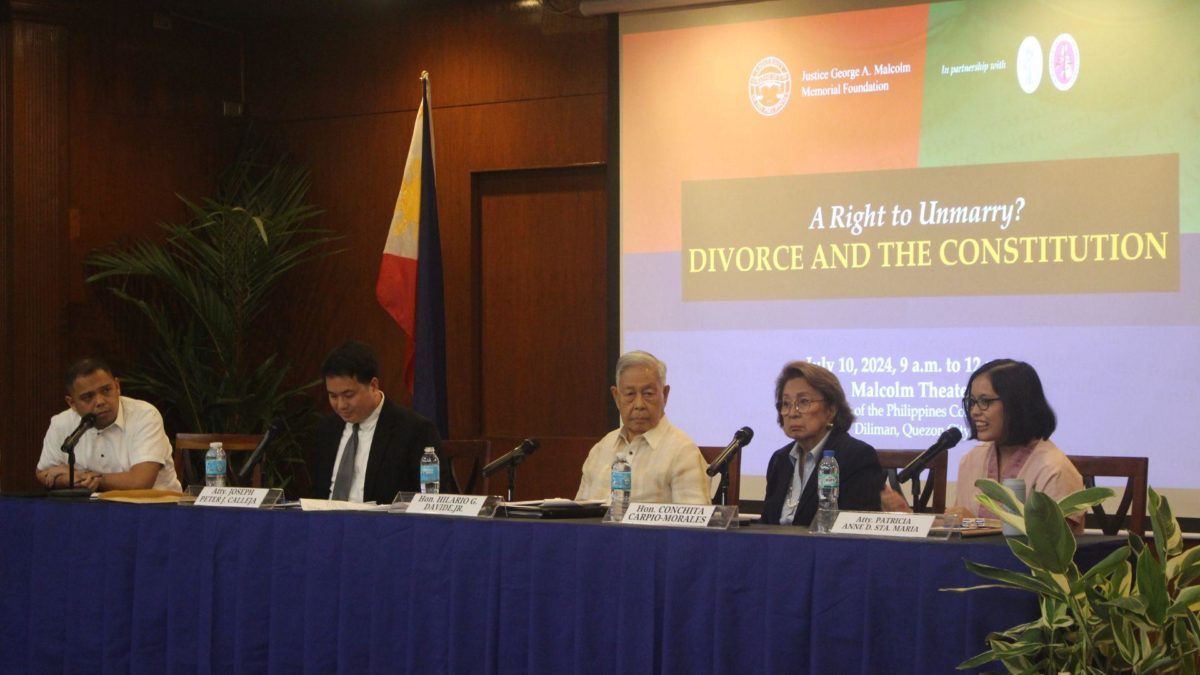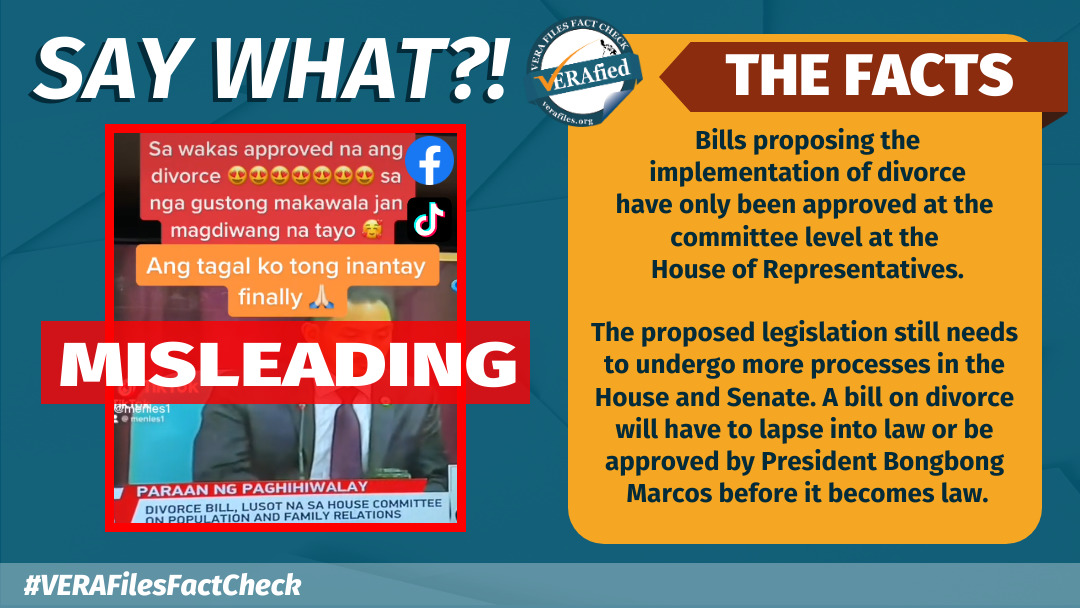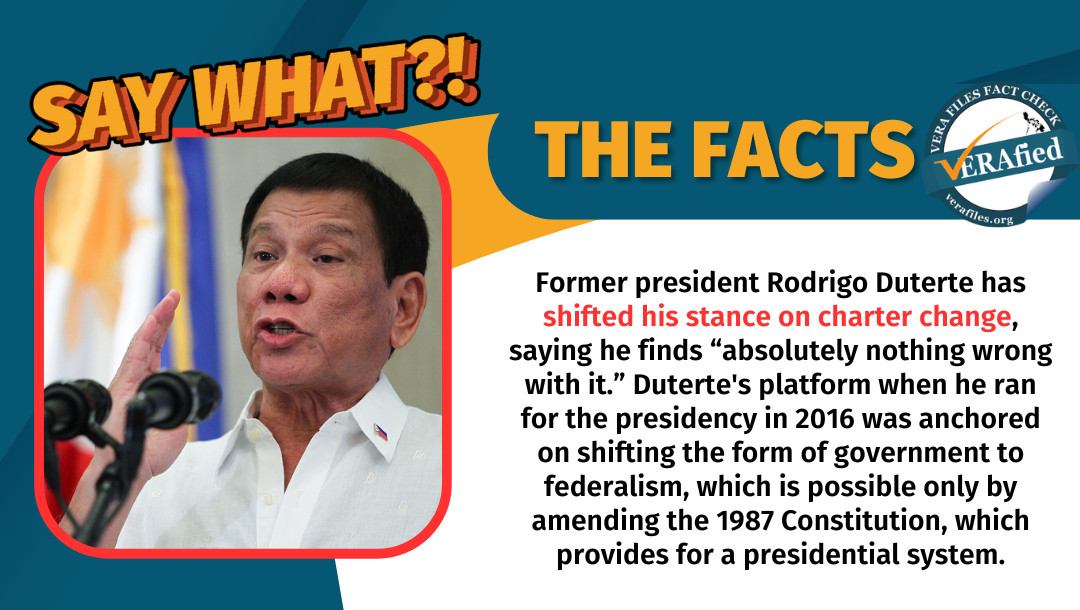Retired chief justice Hilario Davide asserts that absolute divorce violates select provisions of the 1987 Constitution, but former associate justice Conchita Carpio-Morales argues that conditions of the supreme law should consider realities of domestic abuses and family problems.
In a public forum titled “A Right to Unmarry? Divorce and Constitution” hosted by the UP College of Law at Malcolm Hall on Wednesday, July 10, the former magistrates discussed the constitutionality of House Bill No. 9349, which aims to “reinstitutionalize” absolute divorce as an option to dissolve marriages, apart from annulment.
The measure was approved on third reading by the House of Representatives on May 22. Its Senate counterpart, meanwhile, is pending second reading.
The 88-year-old Davide, who was a member of the 1986 Constitutional Commission that drafted the 1987 Charter, emphasized that the first two provisions of Article 15 were clear in describing marriage as “inviolable.”

“In Webster’s new international dictionary, ‘inviolable’ means incapable of being broken or destroyed. Indestructible, secured from violation or infringement,” Davide cited.
However, Carpio-Morales, who had served as ombudsman after her SC stint, said these provisions may only be construed as “guidelines” for the state, as it must also consider realities of domestic abuses and family problems.
Based on 2022 data from the Philippine Statistics Authority, 17.5% of Filipino women aged 15 to 49 have experienced different forms of violence from their intimate partners.
“In working towards this goal, the state may not be oblivious of realities concerning and obtaining of families … It cannot close its eyes on realities that not only destroy but desecrate families,” Carpio-Morales explained.
She added that the dissolution of marriage is not a new concept.
Absolute divorce was first legalized in the Philippines during the American period in 1917 through Act No. 2710. It was repealed in 1943 during the Japanese occupation but was retrieved a year after, when the Commonwealth government was restored.
In 1950, however, it was superseded by the enactment of the Civil Code, which only allowed “relative divorce” or legal separation.
Arguing for the constitutionality of divorce, Carpio-Morales pointed to its legality for Muslim Filipinos, saying that such an option must also be made available to members of other faiths and religions.
“This situation of the majority of the Filipinos, not allowed by law, to dissolve an abusive or unbearable marriage violates the fundamental right to equal protection of the law, and defies the basic constitutional provision mandating life and property and the promotion of general welfare that all Filipinos must enjoy,” she said.
‘Bad joke on marriages’
Davide’s opposition to the pending divorce bill stems from what he calls select “relaxed” provisions.
“As one further reads the bill, he will sooner discover that it also weakens, demeans, degrades, debases or even demonizes marriage as a sacred and inviolable social institution. It is making a bad joke on marriages.”
He cited the provisions on summary proceedings, recognizing foreign divorces and yielding to the finality of matrimonial courts, which, he said, makes it easy for married couples to bypass the grounds enumerated in the bill.
“I am afraid that some groups may, for profit, form a religious sect for the business of celebrating marriages and dissolving marriages,” Davide said.
The former chief justice singled out undergoing sex-affirming surgeries and transitioning from one gender to another as questionable grounds for divorce. He said these modifications not only ease the process of divorce but also dignify the “morally unacceptable” act of changing sex.
Meanwhile, Carpio-Morales said the provision on the civil recognition of valid foreign divorces may help overseas Filipino workers who find trouble in terminating marriages.
The Supreme Court ruled in August 2022 that foreign divorces will only be recognized if one can prove the fact of divorce and its validity with respect to the national law of the foreign spouse.
“Fortunately, under the proposed absolute divorce bill, that nationality rule would probably be not applicable now,” she said.
Perspectives from ‘young minds’
Constitutional law educators, who also spoke at the forum, likewise bared differing views on divorce.
Professor Joseph Peter Calleja from San Beda College-Alabang agreed with Davide that marriages are “inviolable,” arguing that the word is not ambiguous when multiple dictionaries are consulted.
“Wherever possible, words used in the Constitution must be given their ordinary meaning except when technical terms are employed … The term [inviolabe] is not ambiguous. It is not technical, It is not capable of two or more contradictory interpretations,” Calleja said.
Calleja added that the 1987 Charter covers all marriages, as the law did not make a distinction between healthy and disruptive marriages.
“It simply says marriage. Where the law does not distinguish, the courts should not distinguish,” he said.
For Ateneo Law lecturer Patricia Anne Sta. Maria, however, the Constitution does not explicitly prohibit nor mandate divorce.
“It says things and ideas we associate with divorce depending [on] where we are coming from: marriage, family, religion, children and so on. But divorce directly, not so much,” Sta. Maria said.
She added that the provision on “inviolability” assumes an ideal and thriving family.
“It is true that we must protect marriages but protecting is not the same as treating them as untouchable. The marriages that we must protect are those that nurture and enrich the family … If it becomes harmful to the family, why not allow people to end those marriages?” she explained.
According to a 2023 survey conducted by the Social Weather Station, half of the Filipino adult population supports divorce for irreconcilably separated couples while 31% oppose it.
The 19th Congress has only less than a year to pass pending bills to the president before it holds its last session in June 2025.
(The author is a journalism student at the UP College of Mass Communication and is doing his internship with VERA Files.)




